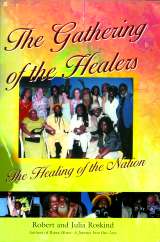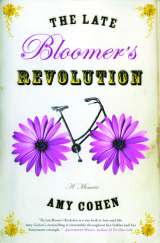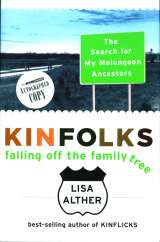Memoir is the new fiction, or so it seems when skimming the New York Times Best Seller list. The lone survivor of a Navy Seal operation describes his daring scape. A former child-soldier recounts his life in Sierra Leone. Even dyed-in-the-wool fiction writers (Nora Ephron, Barbara Kingsolver) have new essay collections (about aging and homegrown food, respectively) on bookstore shelves.

It used to be that memoirs were what interesting people wrote in their declining years after long, adventurous lives. Now, not so much. Today’s memoir tends to revolve around a particular topic, incident or time: decades of experience are no longer required. But that doesn’t mean the memoirs of the young or the specialized are less worthy of library space. In fact, many of these reads pack plenty of perceptivity into otherwise humorous (and occasionally breezy) pages—which makes them the perfect choice for the beach, the porch swing, or even just a sunny lunch break.
Better late than never
It’s likely that Amy Cohen, author of just-released memoir The Late Bloomer’s Revolution (Hyperion, 2007), has recently found herself the recipient of a herd of new best friends. The mere title of her book is fodder for inspiration: a call to arms for all those who feel fate not only passed them by but left them in the dust.
Cohen, a former TV writer and producer for sitcoms like Caroline in the City and Spin City, is hardly reluctant when it comes to spearheading a movement to recognize late bloomers. “Not knowing the simplest steps to riding a bicycle led me to think about all the other things I’d assumed I’d know at 35 but didn’t,” she admits in her book.
The story, at turns hilarious and bittersweet, revolves loosely around Cohen’s ongoing search for a spouse, late into her 30s. While this has long been a common theme in the chick-lit genre, Cohen’s approach is anything but typical. She cops to the malaise, the bad-hair days, the year-long battle with adult acne.

“I come from Russian women whose ankles were even thicker than their mustaches and who welcomed wearing eight skirts in summer,” she writes. It’s as if she’s saying, conspiratorially, “You think you’ve got it rough? Look at me: Things could be worse.” Which, for the reader, is heartening.
But Cohen, despite dealing with the death of her mother, countless wrongheaded relationships and unemployment (her own choice), is no whining victim. Even in the darkest moments she presents terse prose and prickling humor.
“While he was an avid rock and ice climber,” she muses of a potential mate, “I had always believed that the word ‘ice’ should be closely followed by the word ‘cream.’”
Revolution is a fast-paced read with all the fluffy satisfaction of pulp fiction and none of the guilt. Cohen’s memoir proves to all late bloomers than no one is ever too old or too jaded to blossom.
Family ties
“Here I am face-to-face once again with those six-fingered peckerwoods who haunted my childhood,” writes Lisa Alther in Kinfolks: Falling Off the Family Tree (Arcade Publishing, 2007), her first work of nonfiction. “I feel a deep nostalgia for the days when I was a Queen Teen and identity seemed a simple matter of not being a Devilish Deb.”
The best-selling author traces (by way of a far-reaching memoir) a vague and distant branch of her ancestry known as the Melungeons. Apparently one of many barely recorded mixed-ethnicity groups in the South, the fabled Melungeons claim an exotic Portuguese heritage, though Alther discovers the truth is probably closer to a blending of African and indigenous American-Indian blood. Still, she doesn’t let academics get in the way of a good story.
“We pass beneath the forested cliffs,” Alther recalls a childhood memory. “This is where I’ve pictured the caves of the Melungeons. But I don’t see any people at all among the trees—six-fingered or otherwise.”

Alther’s memoir rambles from her early years in Tennessee through her marriage, raising her daughter, living in New York and Paris, and writing five novels. At times the book’s organization leaves the reader wanting for details (the author’s daughter is born and leaves home in a matter of pages), but Alther manages to convey a life’s worth of information in a short book by returning frequently to certain themes: the six-fingered Melungeons and the startling marquee displays of Southern churches.
In fact, as much as ancestry propels this book, the author’s relationship with spirituality plays a supporting role.
“I no longer believe in the Episcopal God,” she admits at one point, recounting teen-age flippancy. “I’ve come to believe instead in my grandmother’s Baptist God because He provides hayrides for His youth groups.”
Kinfolks, based on genealogy, is ultimately a fun read lightened by quirky characters, anecdotes and surprising insights. While this is not the definitive text on Melungeon heritage, it is a unique journey through Appalachia and beyond.
Island odyssey
The Gathering of the Healers: The Healing of the Nation (One Love Press, 2002), by Blowing Rock, N.C.-based authors Robert and Julia Roskind, isn’t the newest book on the memoirs shelf, but it’s still worth a glance.
The self-published (and subsequently rough-around-the-edges) book recounts the Roskinds’ journey to Jamaica—where, inspired by reggae artist Bob Marley’s message of “one love,” they organize a press conference with top Jamaican thinkers, performers and educators.
The couple’s mission—one of divine inspiration, according to the authors—was to spread a message of forgiveness and healing across the poverty-stricken and politically fragmented Caribbean island. A lofty undertaking for sure, but the good news is that the grassroots endeavor resulted in fundraising efforts, educational initiatives and further understanding of the needs of Jamaica’s poorest people.
The book, however, is most interesting for its glimpse into the Jamaica rarely encountered by tourists enjoying the island’s popular, all-inclusive beach resorts.
“In Jamaica, even the car-rental people become friends,” Robert Roskind reveals early on. His travels around the island—seeking luminaries such as Antonnette Haughton (founder of the United People’s Party), reggae patriarch Denroy Morgan, Mortimo Planno (founding member of Kingston’s first Rastafari encampment), Bob Marley’s wife Rita, performing artist Luciano, and author Dr. Dennis Forsythe—are guided by Rasta elders Thomas “Scram” Anderson and Maurice “Red” Lynch.
Of Scram, Roskind tenderly writes, “Sitting in his makeshift kitchen, watching him cook over homemade charcoal in a stove made from an old tire rim supported by three pieces of rebar, you couldn’t feel more catered to if you were in a five-star restaurant watching a master chef.”
Peppered with Jamaican cultural history, Gathering is more than a travelogue and, though often set against a backdrop of white sand and sparkling water, hardly a typical beach read. In narratives by turns amusing and disturbing, the Roskinds reveal an island paradise underscored by social injustice and economic disparity. But the book’s final destination, the press conference held at Bob Marley’s home on February 4, 2002, also allows for a sense of hope.




Before you comment
The comments section is here to provide a platform for civil dialogue on the issues we face together as a local community. Xpress is committed to offering this platform for all voices, but when the tone of the discussion gets nasty or strays off topic, we believe many people choose not to participate. Xpress editors are determined to moderate comments to ensure a constructive interchange is maintained. All comments judged not to be in keeping with the spirit of civil discourse will be removed and repeat violators will be banned. See here for our terms of service. Thank you for being part of this effort to promote respectful discussion.